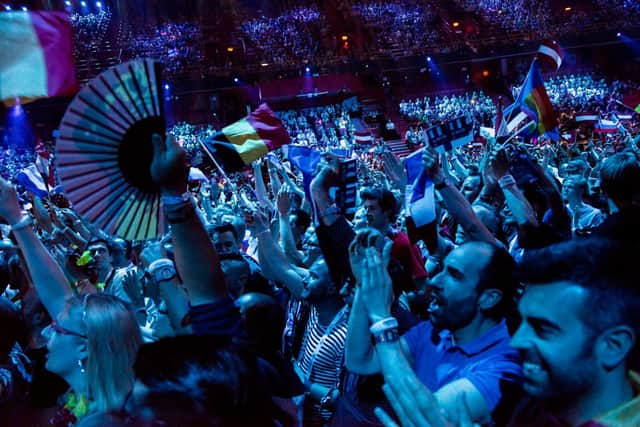Eurovision Song Contest voting 'does show bias' Scottish academics claim


But now, Scottish academics have found that voting bias in the Eurovision Song Contest does exist, with people living in countries that have strong geographical and economic ties more likely to vote for each other.
Researchers from the University of Stirling have analysed results of the music competition since public voting began. The new research – published in the Journal of International Business Studies - looks in detail at voting patterns between 1999, when the vote was opened up to members of the public, and 2013 to establish that patterns of voting bias do exist.
Advertisement
Hide AdAdvertisement
Hide AdDr Isaac Tabner, from Stirling Management School, and Dr Antonios Siganos, from the Adam Smith Business School, have looked at how each country’s votes for its favourite song can give an indication of the likelihood and nature of business exchanges across borders. They estimated bias by subtracting the average number of points received by each country from all participants in the contest, from the number of points received from a counterpart within a particular pair.
The authors said: “This research demonstrates that simple voting in the Eurovision Song Contest actually captures more complex elements of relationships which are driven by emotions, familiarity, psychological distance, and feelings of intimacy.
“We found that countries which share above average voting in Eurovision are likely to share more cross-border mergers between businesses. The flipside of this, where countries deliver below average votes for each other and share fewer business transactions, is also true.”
The study also found that voting increased between countries which shared similarities of language - and dropped if there was a history of conflict between nations.
The authors said: “Voting patterns also correlate with levels of foreign direct investment and migration movements across borders. Of course, there are other factors which influence business exchanges between countries, including: sharing a border, the distance between capital cities, the degree to which languages are shared, and whether or not armed conflict has taken place between the countries in question.”
They added: “While much prior research focusses on similarity and distance measures, we argue that there are times when too much closeness and similarity can be counter-productive. For example, by creating destructive competitive rivalry, or just simply reminding counterparties of each-others’ bad points.
“This research provides a measure of affinity by which social scientists can explore nuanced relations between the populations of participating countries, and has the additional benefit of using a sample size – in the millions – much bigger than is typically achieved by surveys.”
This year’s contest, which was due to take place in Rotterdam, in the Netherlands, this month, was cancelled due to the Coronavirus outbreak.